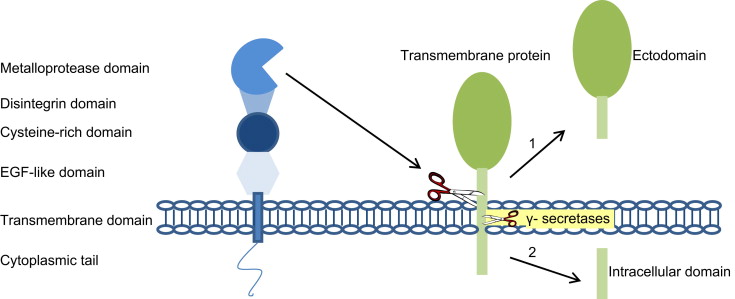
Research Focus
Growth factors and their receptors have been a focus of research for decades. We have learned much about the structure of receptors and ligands, the intracellular pathways they activate and the target genes they address. What is less well understood is the fine regulation in the organism that depends on synthesis, processing and release of growth factors or their receptors by a-disintegrin-and-metalloprotease (ADAM) cleavage (Ectodomain shedding) or by other mechanisms.
The kidney is a prime example for a multicellular organ whose function depends on factor release for communication between the different cellular compartments (epithelial, endothelial, stroma and immune cells) in physiological and pathophysiological conditions. In the kidney, ADAM-mediated release of growth factors is intricately involved in kidney repair after injury. However, when this factor release is sustained by severe injury, or by repeated chronic injury, this same repair process can become maladaptive and lead to kidney fibrosis.
The high prevalence and burden of fibrotic chronic kidney disease (CKD) is well established worldwide. However, therapeutic strategies to prevent fibrosis are lacking.Research in the Herrlich Lab aims to define new therapies for the treatment or prevention of kidney disease. We investigate the regulation and release of growth factors and their receptors in kidney disease using mouse models of acute kidney injury and chronic kidney disease as well as cell culture models.
We also study the complex network of intracellular signaling pathways that regulates ectodomain cleavage using biocomputational analysis of a large shRNA screen for cleavage regulators we generated, and by validating our findings in vitro and in vivo in kidney disease as well as cancer models.
Support & Engagement
My laboratory and I are dedicated to fostering a supportive environment in higher education. Throughout my career, I have trained and mentored a broad range of trainees from various backgrounds, cultures, religions, and regions of the world, including many female trainees.
Currently, I am mentoring and teaching a wide array of undergraduates, graduate students, postdoctoral fellows, and junior faculty. Recent trainees include a PhD student from Egypt, two postdoctoral fellows from Japan and China, a technician from Morocco, a trainee from Greece, a Master’s student from India, and a Master’s student from Pakistan.